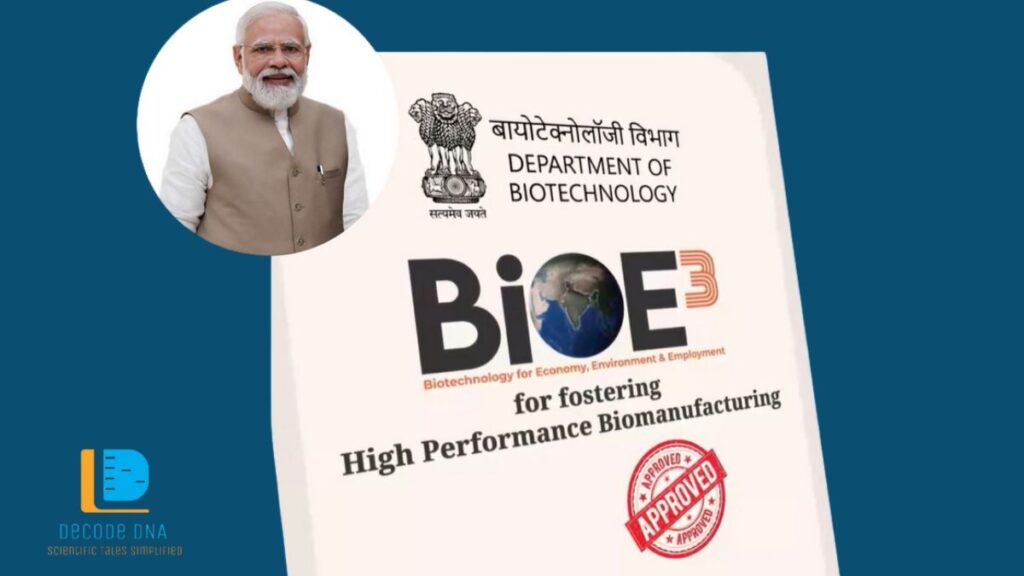The biotechnology sector in India is at a new high. Thanks to the two most remarkable policies BioRIDE and BioE3. It is believed that these initiatives have been designed to make the country a hub for global biotechnology; furthermore, the emergence of these policies is set to bring more innovation in this field, foster entrepreneurship, and expedite sustainable practices.
So, whether you are offering biotech summer training courses or dealing with other aspects of the biotech industry, here is a deep dive into these latest initiatives that are set to take the industry to a new high.
What is BioRIDE policy?
The BioRIDE scheme has been specially designed to promote bio-entrepreneurship and make the country’s position more robust as one of the global leaders in biomanufacturing and biotechnology. There is no denying that the biotech industry relies on research-based initiatives.
Naturally, the advent of these policies aims to move ahead the research initiatives, lower the gap between industrial applications and academic research, and help in the development of products. The policy is a part of the Indian Government and aims to make the most of biotechnology to handle global and national challenges like agriculture, healthcare, clean energy, and sustainability.
Read here to learn more about the long-term consequences of the BioRIDE scheme:
- Advancement of innovation
The scheme offers various incentives and grants to promote high-end research and development in biopharmaceuticals, biology, bioplastics, and bioenergy.
- Enhance research through external funding
BioRIDE (Biotechnology Research Innovation and Entrepreneurship Development) is going to play a crucial role in advancing innovation, research, and technological development across various fields. It also aims to support external funding to universities, research institutions, and individual researchers in the areas of bioenergy, agriculture, healthcare, and sustainability of the environment.
- Promote sustainable biomanufacturing
With this policy, a major portion of the focus should be used for the promotion of sustainable practices in biomanufacturing to align it with the green goals of this country.
- Boost collaboration between industries and academic institutions
BioRIDE will also increase collaboration between industries and academic or research organizations to improve the commercial aspects of bio-based technologies and products.
- Support human resources in biotechnology
BioRIDE will expect to support and provide holistic development to scientists, students, and young researchers working in different segments of biotechnology. The combined programme in HR development can also contribute to the task of building and upskilling manpower; that way, people become more competent to exploit new areas of technological advancement. So, it seems that research institutes need to focus more on biotech training to step into this new dawn.

What is BioE3 policy?
BioE3 (Biotechnology for Economy, Environment, and Employment) is an all-new policy of the Indian Government to encourage high-end biomanufacturing. With the implementation of this policy, the government aims to address global challenges like de-carbonisation, and climate change, and bring sustainability with the help of biotechnology.
What are the key aspects of this policy?
Some of the major highlights of this policy include the following:
- Building biomanufacturing hubs
The biomanufacturing hubs that are going to be built will facilitate the transformation from research only to the commercial aspects, and offer state-of-the-art support during the pre-manufacturing stage to researchers, start-ups, and industries.
- Creating a regenerative economy
The policy is going to support green growth through a biotechnology-based economy that is largely regenerative and includes sustainability in the biomanufacturing process.
- Collaboration between biotech and AI
Integration of AI with data like proteomics and genomics to bring major changes in areas like personalised medicine, biomanufacturing, and diagnosis of diseases is the reason for collaboration.
Now, the most persistent question you are going to ask after reading this is how are young aspirants expected to benefit from these policies. Well, if the policies are implemented as projected, more new and young scientists are going to work more to address global challenges like food availability and change of climate. Furthermore, new and innovative ideas will arrive in the market and help new and young entrepreneurs expedite the development of products.
The BioRIDE policy focuses on the development of skills for professionals and researchers to ensure that they are equipped with the latest tools and technologies in the field of biotechnology. All this is going to support employability and let them assume leadership roles in various biotech enterprises.
Decode DNA is one of the leading organisations offering biotech summer training courses for graduate and postgraduate students, college faculties, and PhD scholars to support India’s new-age policies to support bio-manufacturing. That way, the country will have younger professionals contributing to the field of high-end manufacturing in pharmaceuticals or clean energy. It is also expected to generate demand for more skilled people in production and processes as well as bioengineering.
FAQs
- What is the new BioE3 policy?
The new BioE3 policy is expected to boost high performance in the field of bio-manufacturing, which refers to the production of bio-based products.
- What is BioRIDE policy in the field of biotechnology?
The BioRIDE policy aims to support biotechnology and research and development in India.

